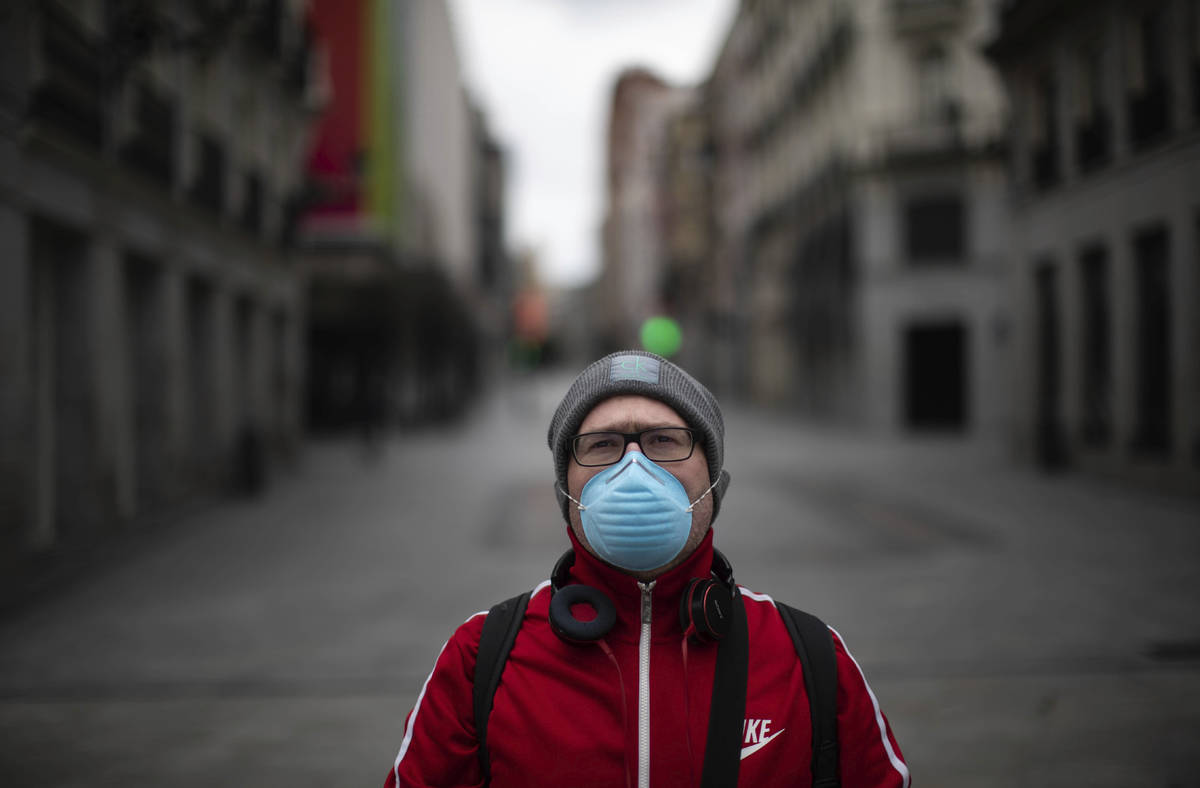Some light appears despite forecasted Great Depression-sized slowdown

The outbreak of the coronavirus has dealt a shock to the global economy with unprecedented speed. Following are developments Tuesday related to the global economy, the work place and the spread of the virus.
Global malaise
Economists are still trying to put into context the shock that the world has absorbed, and will absorb. On Tuesday, the International Monetary Fund put the damage at Great Depression levels.
— France is forecasting an 8% drop in growth this year and is staring down its worst recession since World War II. And that 8% drop may be optimistic, Finance Minister Bruno Le Maire said Tuesday.
France is pumping money into unemployment benefits and helping struggling businesses. But that spending, coupled with plunging growth, could push France’s deficit up to 9% in 2020, Budget Minister Gerard Darmanin said.
As you were
North America is in lockdown but in regions struck early by the coronavirus, there is movement toward whatever will become the post-pandemic normal. Those attempts could provide the roadmap ahead for the rest of the world.
— Italian book, stationary and children’s stores were allowed to open nationwide Tuesday, provided they could maintain the same social-distancing and sanitary measures required in supermarkets. Some regional governors did not greenlight those openings, however, and many shop owners are keeping their doors shut.
— Poland will start to gradually lift restrictions Sunday on businesses and individuals. The nation went into lockdown on March 13. Government spokesman Piotr Mueller said that the number of people allowed into shops is expected to be raised and some restrictions on open air activity will be lifted.
— Austria is allowing small retailers, DIY businesses and gardening supply stores to reopen Tuesday. Customers will be required to wear masks and maintain social distancing. There will be limits on the number of people allowed into stores.
The country closed almost all retail stores in mid-March. Austrian authorities have said they plan to begin reopening them on May 2, followed by restaurants in mid-May, provided the pandemic remains under control.
Cost in jobs
The wave of layoffs and furloughs have been massive. Companies continue to shed jobs, though most vow to bring people back into the workplace as soon as it is safe.
— Groupon will release or furlough about 2,800 workers, more than 40% of its entire workforce. The company, which had struggled before the pandemic, said in a regulatory filing that the majority of the cuts will take place in the current quarter.
— New Zealand, which has also been hit by the outbreak, is now absorbing the economic fallout. NZME, which runs radio stations and newspapers, is reducing its workforce by 15% through layoffs and attrition. And the owners of the country’s Burger King restaurants are seeking bankruptcy protection and a buyer dozens of locations with hopes of speeding re-openings when the pandemic fades.
Markets
Volatility in markets is continuing. Markets have tumbled sharply since the beginning of the pandemic, but they’re up this week.
— Stocks are opening higher on Wall Street Tuesday as traders gingerly embrace early signs that the White House and a number of state governors are sorting out how to gradually reopen the economy. Big companies also started reporting their first-quarter earnings, revealing damage from the coronavirus outbreak.
Islands in the stream
Global activity has screeched to a halt, but there are aspects that are humming, and that includes streamed entertainment.
— Roku expects first-quarter steaming hours will spike 49% compared with last year, or total 13.2 billion hours. It anticipates an increase of 3 million active users, close to 40 million.
The newly launched Disney streaming service now has 50 million new subscribers.